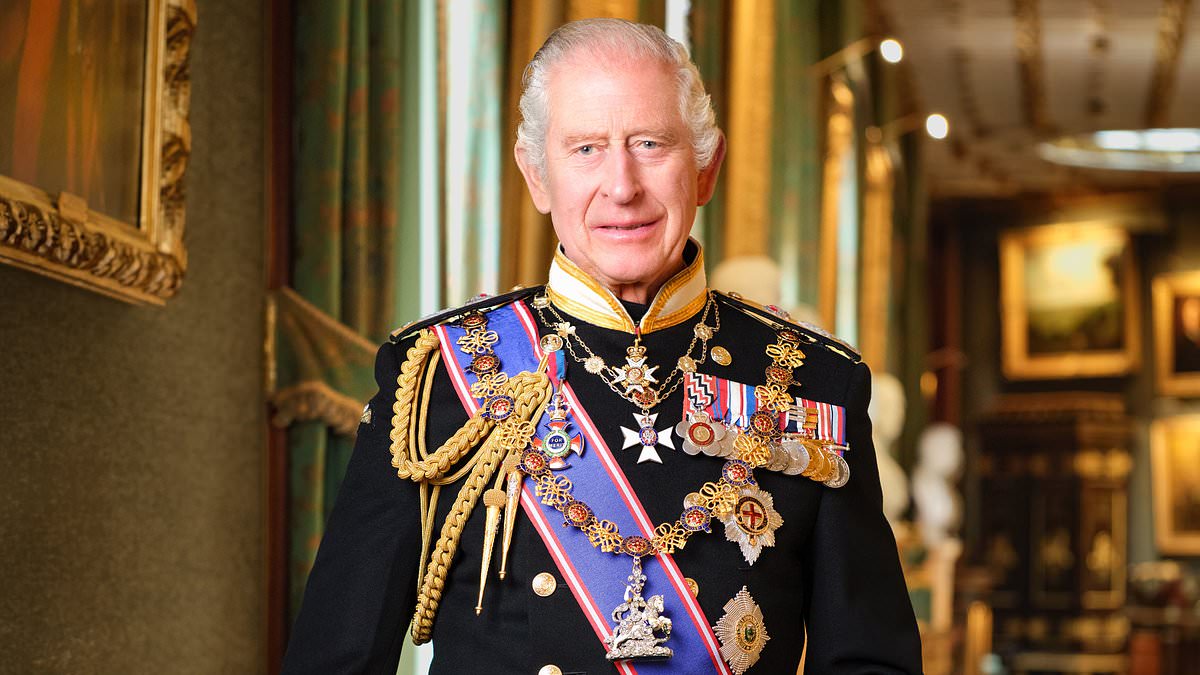King Charles III was at his private residence in Balmoral when he was diagnosed with an enlarged prostate.
He will attend hospital next week to be treated for an enlarged prostate.
Aides said the King’s condition was benign and he would be having a corrective procedure. His engagements will be postponed for a short period of recuperation.
It is believed he is staying at his private home, Birkhall, on the Balmoral estatem where he received the diagnosis today.
While the level of detail on Charles’s health is uncommon, royal sources said that he was keen to share the details of his diagnosis to encourage other men who may be experiencing symptoms to get checked, in line with public health advice.
It comes after Kensington Palace separately said at 2pm that the Princess of Wales was being treated in hospital after undergoing successful abdominal surgery.
The two announcements came just 90 minutes apart, with Buckingham Palace making the statement about Charles’s health at 3.30pm this afternoon.

King Charles III arrives to attend St Mary Magdalene Church in Sandringham on January 7

King Charles and Queen Camilla arrive at Crathie Kirk near Balmoral for church on January 14
Charles had a series of meetings and events planned at Dumfries House in Ayrshire tomorrow and on Friday, which have now been postponed on doctor’s advice.
Guests, including foreign dignitaries and members of the Cabinet, were due to travel to Scotland.
Royal officials are understood to have made the announcement this afternoon to allow for them to be made aware of the situation.
A Buckingham Palace spokesman said at 3.30pm today: ‘In common with thousands of men each year, The King has sought treatment for an enlarged prostate.
‘His Majesty’s condition is benign and he will attend hospital next week for a corrective procedure. The King’s public engagements will be postponed for a short period of recuperation.’
The 75-year-old monarch acceded to the throne just 16 months ago after spending 70 years as the heir to the throne, and was crowned last May in Westminster Abbey.
Royal expert Phil Dampier tweeted: ‘Today’s medical news about the King and Princess of Wales reminds us that they are human beings with the same problems as the rest of us.

Charles visits Flitcham Church of England Primary Academy in Norfolk on January 5

King Charles III and Queen Camilla at church in Sandringham on Christmas Day last month
‘Cue the usual suspects complaining they get better treatment. But the point remains.’
As for Kate, 42, she was admitted to The London Clinic in Marylebone yesterday for the planned procedure and is expected to remain in hospital for ten to 14 days.
The future Queen will then return home to Windsor to continue her recovery with the support of her family, Kensington Palace said. It is understood not to be cancerous.
The Princess is likely to be advised to recuperate for two to three months, and her return to official duties will depend on medical advice closer to the time.
Kate is not expected to return to public events until after Easter, and her husband Prince William will combine being by his wife’s and children’s side throughout.
She was not rushed for hospital and her condition was not something that developed over the weekend, according to reports.

King Charles III is pictured in a portrait taken at Windsor Castle last year
The Prince will also postpone a number of engagements as he supports his family, and will not undertake official duties while his wife is in hospital.
He will also do no official duties during the immediate period after Kate’s return home. Royal aides will provide a revised schedule for William in due course.
Kate is close to her family, and her parents Carole and Michael Middleton and sibling Pippa Matthews and James Middleton are set to rally round and help support her recovery at the Waleses’ home in Windsor.
Neither William nor Kate will travel internationally over the coming months.
William and Kate were said to have been planning a high-profile visit to Rome this spring as part of a European charm offensive, but this is now in doubt.
